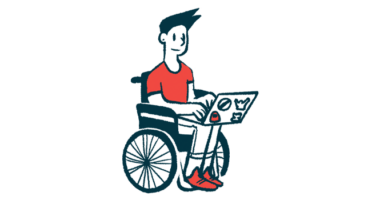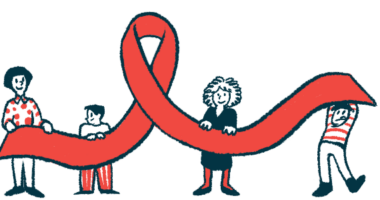Finding motivation when I hit the ‘why bother’ moment
Healthy habits are useful when you're hit by various kinds of exhaustion

Sometimes living with my ALS isn’t a matter of finding the right balance of effort and ease. At times, I have zero mental motivation to make the effort in the first place! And from the comments I read on many social media sites, other ALS patients have felt this way, too. But I’ve found a unique way to recover my motivation and keep it alive, and I’m excited to share it with you.
Let’s begin with an example of how I lose motivation.
Before my diagnosis, I enjoyed effortless movement. I’d think, “Walk across the room,” and suddenly I’d be over there. Plus, more times than not, I was lost in thought and paying no attention to my walking.
But as my ALS symptoms progressed, my awareness grew of how much effort was needed to do simple things. My shoes felt heavy and my leg muscles weak. Even with the help of my rollator, walking across the room required full mental focus. While urging my feet and legs to keep moving, my mind performed multiple balance calculations to avoid nearby furniture.
Sometimes — a big sometimes — I spent so much of the day in extreme mental focus that I’d sit in my chair and think, “Why bother walking across the room at all?”
I know it’s a good thing to conserve my physical energy and stay put. But I also know that choosing “Why bother?” too many times is unhealthy for both my body and mind. I needed a way to make the effort less of an effort. And that can happen when it’s a habit.
Years ago, when I taught wellness and stress management classes, one lesson was on how we can’t exert mental effort for long periods. It leads to mental exhaustion, burnout, and feelings of hopelessness. The better strategy is to reduce friction or ask, “What would make it easier for me to do this?”
How to do it
Reducing friction means removing an obstacle or coming up with a strategy that makes a task easier to do. My friction was not being sensitive to my daily mental fatigue. Often, I’d push myself through “just 15 minutes more” on my computer, which morphed into a full brain-drain hour.
To build a new habit, I decided that whenever I reached the “just 15 minutes more” point, that was my signal to stop. Then I perform a few leg stretches under my desk, extend both arms up and out, and assess my mental alertness.
When walking across the room, I focus on taking slow, even breaths and relaxing my shoulders.
Taking mental breaks and doing a few simple exercises in my chair helped eliminate those “why bother?” moments I was having later in the day.
Another example of how I reduce the friction of not doing daily exercise can be found in my column “My Tricks for Adding Movement to My Day.”
Try my strategies to help your motivation. I believe we can learn to live well while living with ALS.
Note: ALS News Today is strictly a news and information website about the disease. It does not provide medical advice, diagnosis, or treatment. This content is not intended to be a substitute for professional medical advice, diagnosis, or treatment. Always seek the advice of your physician or other qualified health provider with any questions you may have regarding a medical condition. Never disregard professional medical advice or delay in seeking it because of something you have read on this website. The opinions expressed in this column are not those of ALS News Today or its parent company, BioNews, and are intended to spark discussion about issues pertaining to ALS.








Comments